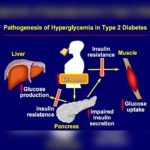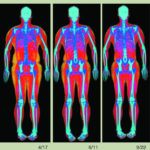
#149 – AMA #20: Simplifying the complexities of insulin resistance: how it’s measured, how it manifests in the muscle and liver, and what we can do about it
“If you’re in the business of wanting to live the healthiest life you can live, which means longer and better, you’ve got to be insulin sensitive, full stop.” — Peter Attia

#140 – Gerald Shulman, M.D., Ph.D.: A masterclass on insulin resistance—molecular mechanisms and clinical implications
“If we can understand insulin resistance, then that’s going to be the best way to fix diabetes, heart disease,. . .fatty liver disease, and slow down cancers.” — Gerald Shulman

#136 – AMA #17: Body composition methods tour de force, insulin resistance, and Topo Chico
“Skeletal muscles are the greatest reservoir that you have for glucose disposal.” —Peter Attia

#110 – Lew Cantley, Ph.D.: Cancer metabolism, cancer therapies, and the discovery of PI3K
“If I get a result that suddenly doesn’t make sense, to me that’s more exciting. . .if you figure out why it didn’t work and what was wrong, then that’s where most breakthroughs come from.” — Lew Cantley

#87 – Rick Johnson, M.D.: Metabolic Effects of Fructose
“Fructose turns out to be used by animals as a mechanism to store fat.” — Rick Johnson

#85 – Iñigo San Millán, Ph.D.: Zone 2 Training and Metabolic Health
“What I have been seeing for 25 years, working with elite athletes, is that [zone 2] is the exercise intensity where I see the biggest improvement in fat burning and the biggest improvement in lactic clearance capacity. Therefore, that means that the mitochondria is where you see the biggest improvement.” —Iñigo San Millán, Ph.D.
Sign up to receive Peter's expertise in your inbox
Sign up to receive the 5 tactics in my Longevity Toolkit, followed by non-lame, weekly emails on the latest strategies and tactics for increasing your lifespan, healthspan, and well-being (plus new podcast announcements).

#69 – Ronesh Sinha, M.D.: Insights into the manifestation of metabolic disease in a patient population predisposed to metabolic syndrome, and what it teaches us more broadly
“The way we raise our kids early on might actually set a pattern for how much of an accelerated life, or how much of a stressed out nervous system they might have later on. . . a lot of the behavioral patterns that we’re instilling in our kids are kind of setting the foundation for insulin resistance and inflammation early on.” —Ronesh Sinha

#66 – Vamsi Mootha, M.D.: Aging, type 2 diabetes, cancer, Alzheimer’s disease, and Parkinson’s disease – do all roads lead to mitochondria?
“We have 300 different forms of monogenic mitochondrial diseases. . .and these are terrible diseases and we need therapies for them. . .but it’s also our hope that studying some of them will provide insights into the common form of aging as well.” —Vamsi Mootha

#59 – Jason Fung, M.D.: Fasting as a potent antidote to obesity, insulin resistance, type 2 diabetes, and the many symptoms of metabolic illness
“We think of all these responses, obesity, insulin resistance, and the beta cell failure, as pathologic. They’re actually protective. . .Your body is actually trying to protect itself against the root cause of the problem which is too much insulin, too much glucose.” — Jason Fung

#41 – Jake Kushner, M.D.: How to thrive with type 1 diabetes and how everyone can benefit from the valuable insights
“You have this unique population of [type 1 diabetics] where you can see the insulin that goes into them, and you can see it’s direct impact on weight gain. . . and they’re at risk for cardiovascular illness. And to me that just says that there’s something about the Standard American Diet that’s making us sick. And ultimately we will all be at risk for cardiovascular disease.” —Jake Kushner

